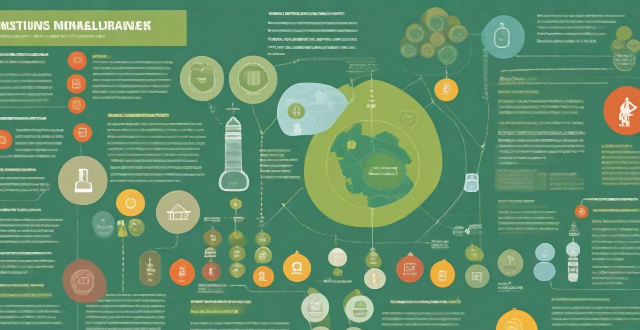该文本讨论了气候融资计划面临的主要挑战和可能的解决方案,包括缺乏政治意愿、融资渠道有限、项目设计和实施能力不足以及治理和问责机制薄弱。文章强调通过加强合作、多元化资金来源、提升能力建设和完善治理框架来克服这些障碍,以实现更可持续的未来。

Challenges Faced by Climate Financing Initiatives
Climate financing initiatives aim to mobilize funds for climate change mitigation and adaptation measures. However, these initiatives face several challenges that hinder their effectiveness and efficiency. This article will discuss the main challenges faced by climate financing initiatives and provide possible solutions to overcome them.
Lack of Political Will and Commitment
One of the biggest challenges faced by climate financing initiatives is the lack of political will and commitment from governments and other stakeholders. Without a strong political backing, it is difficult to mobilize adequate funds and resources for climate action. This can lead to insufficient funding for projects, delays in implementation, and a lack of accountability for results.
Solution: Building Consensus and Collaboration
To address this challenge, there is a need for greater collaboration between governments, civil society organizations, private sector actors, and international institutions. By building consensus on the importance of climate action and working together towards common goals, it is possible to increase political support and commitment for climate financing initiatives.
Limited Access to Finance
Another challenge faced by climate financing initiatives is limited access to finance. Many developing countries lack the financial resources needed to implement large-scale climate change mitigation and adaptation projects. This can lead to a reliance on external funding sources, which may not always be available or sufficient to meet the needs of the project.
Solution: Diversifying Funding Sources
To overcome this challenge, there is a need to diversify funding sources for climate financing initiatives. This can include tapping into new sources of finance such as green bonds, climate insurance, and public-private partnerships. Additionally, innovative financing mechanisms such as blended finance and impact investing can help mobilize additional resources for climate action.
Insufficient Project Design and Implementation Capacity
Many climate financing initiatives face challenges related to project design and implementation capacity. This can result in delays, cost overruns, and suboptimal outcomes for projects. In some cases, projects may fail to achieve their intended impact due to poor design or implementation.
Solution: Strengthening Capacity Building Efforts
To address this challenge, there is a need to strengthen capacity building efforts at both the national and international levels. This can include providing technical assistance, training programs, and knowledge sharing platforms to improve project design and implementation capacities. By investing in capacity building, it is possible to enhance the effectiveness and efficiency of climate financing initiatives.
Weak Governance and Accountability Mechanisms
Weak governance and accountability mechanisms are another challenge faced by climate financing initiatives. This can lead to corruption, mismanagement of funds, and a lack of transparency in project selection and implementation processes. As a result, the effectiveness and credibility of climate financing initiatives can be undermined.
Solution: Establishing Robust Governance Frameworks
To overcome this challenge, there is a need to establish robust governance frameworks for climate financing initiatives. This can include setting clear guidelines for project selection, monitoring and evaluation, and establishing mechanisms for ensuring transparency and accountability. By strengthening governance frameworks, it is possible to enhance the credibility and effectiveness of climate financing initiatives.
Conclusion
Climate financing initiatives play a critical role in supporting climate change mitigation and adaptation measures around the world. However, these initiatives face several challenges that must be addressed to ensure their effectiveness and efficiency. By building consensus and collaboration, diversifying funding sources, strengthening capacity building efforts, and establishing robust governance frameworks, it is possible to overcome these challenges and create a more sustainable future for all.